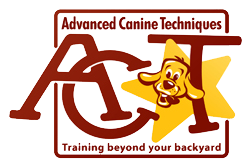What qualities do you look for in a dog trainer?
Our August blog follows last month’s topic on types of services dog trainers provide (group classes, private lessons, board and train, day train or a combination). In this blog, we are going to talk about the qualities you want to look for in a dog trainer.
There are 3 main dog training organizations. The Association of Professional Dog Trainers (APDT), International Association of Canine Professionals (IACP) and National Association of Canine Professionals (NADOI).
I would want a trainer to belong to at least 1 of those organizations. They have a code of ethics and encourage members to act ethically and professionally for clients and dogs. I am a professional member of all 3.
Some trainers have an alphabet of letters surrounding their names (CPDT, CPDT-KA, CPDT-KSA, CDT, CDTA, PDTI, KPA, Master Trainer, etc). That means that the trainer had to either pass a written test and/or submit videos of their work for peers to evaluate. Are those letters critical? No, they are not. I know plenty of trainers that are amazing and have been titling and training dogs for decades.
The certifications just mean the trainer took time to document their work and submit it for peer evaluation. Depending on the certification they have, they need to obtain a certain number of continuing education credits within a specified time frame. I am an endorsed member of NADOI, and I have my IACP CDT-CDTA-PDTI. That means that I have to accumulate 20 hours of continuing education every 2 years for IACP and 36 hours every 3 years for NADOI by attending approved workshops, seminars or conferences.
In addition to those letters you may read or hear the terms force free (FF), Purely Positive (PP), Balanced or Traditional. Ultimately you want to find a trainer that you trust and that uses techniques and training aids that you agree with. I consider myself a balanced trainer. That means that I reward good behavior and correct inappropriate behavior, however, I try to find the correction least aversive to the dog without nagging. I want to be firm but fair to each dog I work with. I also want to make sure that each owner is comfortable with the training aid(s) that are recommended.
I would look for a trainer that can show video/photos of their work. (This is an area I struggle with but hope to get better moving forward). I have a lot of photos and work during the training, but I often fail to get initial video of the dog misbehaving.
I want a trainer that is willing to communicate with me and is familiar with different philosophies and techniques and can explain why they use the tools they do. The more experience they have with different breeds and different ways to solve a problem the better. Dog training is not one size fits all, so you need someone with experience and variety in their skill set. I also want a trainer that can refer me to someone with more experience when needed.
My area of expertise is pet dogs and therapy dogs. I want to teach pet dogs good manners so they can stay in their home and participate in activities with their family. I also want to work with dogs that have behavior issues such as resource guarding, separation anxiety and aggression. I have had 4 therapy dogs and all of my dogs have their canine good citizen. 3 of them earned their CGCA.
Competition obedience, agility and conformation are not my specialties, but I can refer you to some fabulous trainers that can help you reach those goals. The same applies to service dogs. I can get you started, but you will want to work with a trainer or organization that has competed and titled, or task trained dogs for service work.
Lastly, I would talk to veterinarians, fellow dog owners, groomers, shelters, etc, to see who they recommend and why. Contact the trainers and talk to them on the phone, via email or ask if you can observe a class. I allow anyone that wants to observe to attend any of my classes as long as I know ahead of time so I can plan seating and space accordingly.
Hopefully this gives you some ideas and suggestions of what you are looking for in a dog trainer. Next month we are going to cover what trainers look for in a client.

